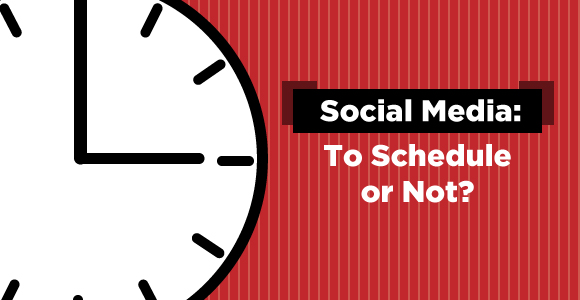As the use of social media by churches becomes more common, a debate is raging: Should you schedule your social media posts or not?
For the anti-scheduling camp, the very nature of scheduling social media is like pre-recording a message for a dinner party and expecting everyone to want to talk to you.
For the pro scheduling camp it’s a no brainer. Why wouldn’t you?
The Pro-Scheduling Argument:
1. Efficient
There are only 24 hours in the day. We’ve all got other things to do at work and we can’t be on social media all day.
2. Helps Alignment
Planning ahead and scheduling posts helps you align your messages with other events and channels. There are all kinds of free social media templates that can help you plan ahead. It also gives your design team time to create the best creative content. If you have a volunteer community team like I do, it helps them know what’s coming up and what to post.
3. Consistent Voice
There is nothing worse than being silent for days at a time. It’s a common mistake. Being a regular part of your audience’s online experience can drive engagement higher. It’s a good idea to experiment to find the optimum frequency.
4. Peak Viewing
There is nothing worse than posting when the majority of your audience isn’t online. Advertising buyers work hard to have the their ads shown when their target audience is watching. It’s the same for social media. With a bit of experimenting you will know when the most people are there. For example we post short scripture verses in different and creative ways during the morning commute time because we know our audience is online and checking in while riding public transit.
The Anti-Scheduling Argument:
1. It’s Fake
There are enough plastic, shallow interactions in the world. The church doesn’t need to add to them.
2. No Community Engagement
If all you are doing is scheduling posts and forgetting about any kind of engagement with your audience then you’re taking the social out of social media. You’ve made it just another broadcast channel. Here’s a brilliant example of a major American bank faking community engagement that’s so bad it’s hilarious.
3. Ignore Major Events
Want to appear out of touch? Let the scheduled tweets fly during a breaking news event. Suddenly the off-handed and seemingly innocent comment about “blowing things up” that went out during the Boston Marathon bombing is wildly inappropriate. Promoting your stuff during a tragedy is at best tone deaf and at worst offensive. Plus it draws attention to the fact that you’re not actually online and engaging.
4. Spontaneous Works
On the morning of St. Patrick’s Day I created a quick graphic for Facebook to celebrate the real reason for St Patrick’s Day (yes, I forgot). It’s been the closest thing we’ve had to going viral (in our own small way). It got reactions all throughout the day and even from across the world in Ireland. The stats were 30 times what we usually get. When I posted about, someone tried the same thing and got immediate results.
Where I Stand:
I am for scheduling social media if you are actively engaged with your audience on social media. I am not for scheduling social media if you don’t engage with your audience. In fact, if you’re not engaging with your audience, get off. There is nothing more annoying or frustrating for your audience than being ignored. You can’t treat your social media audience as just another broadcast channel. You wouldn’t ignore people who ask you questions in real life. Why do so online?
What do you think? Do you schedule or not? Comment below.
Scheduling tools you can use:
- HootSuite (Free and paid)
- Sprout Social (paid only)
- Buffer app (Free and paid)
- Facebook timed posts (Free)






